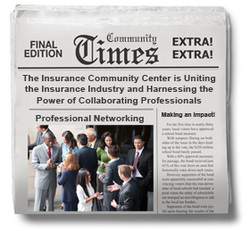|
Unfortunately, car break-ins happen, but you can take steps to minimize your risk and keep your vehicle and belongings safe.
By taking a few minutes to review these tips now, you could avoid the hassle of repairing (or replacing) your car later. Here are 10 smart ways to keep your vehicle safe from theft. Don’t Make a Break-In Easy
Plan Ahead (Even in Your Neighborhood)
Hide What’s Important
What to Do After a Crime If you’re the victim of a vehicle break-in or theft, take photos of the damage, file a police report and reach out for help filing an insurance claim. We can also help you be more proactive. Get in touch to learn about additional coverage for your vehicle or home.
0 Comments
We never expect to get in a car accident. And even though accidents are common, they feel like a big deal when they happen to us.
It’s natural to experience shock, anger, fear and other emotions in the moment and after the fact. But, preparing in advance can help make a collision more manageable. If you're ever involved in a car accident, taking these six steps can help you better handle the experience. Step 1: Make sure no one is hurt. Call 911 if you, another driver, any passengers or any bystanders need immediate medical attention. Step 2: Keep everyone safe. The accident scene can be a hazard for other drivers. If the collision is minor, move the vehicles to the side of the road or the nearest parking lot. If the accident is major, carefully exit your car and walk to a safe place. Step 3: Call the police. Ideally, law enforcement will come to the scene quickly and take an official report. However, the local police department may not have the resources to respond to a minor accident, in which case you can file a police report yourself later. Step 4: Gather necessary information. Use your phone's camera or a pen and paper to note the other driver's name, address, phone number and insurance information. Record the other vehicle's license plate, vehicle identification number, make and model. Step 5: Document the accident. Take photos, videos and voice recordings to capture vehicle damage, road conditions and any details you remember about the events leading up to the crash. Step 6: File a claim. Get in touch as soon as possible to get your claim started. We can work to get your car repaired or replaced and minimize the disruption to your life. Reach out if you have questions about your accident coverage or anything else. When you ask, “Should I lease a car?” you likely hear one of two words: "Do" or "Don't.’
That makes it difficult to decipher the pros and cons of leasing a vehicle. The answer to the question, like many financial decisions, depends on a host of individual details including price, terms, driving record, insurance history and more. Misinformation and even some long-held biases on the pros and cons of leasing add to the confusion. But leasing a car makes sense for many people. Are you among them? The best way to judge is to understand the pros and cons of leasing a car, how leasing a car works and what insider tips for leasing a car might help you get the best deal. Here are some of the particulars you might consider: What Is a Car Lease? You'll often hear car leasing likened to apartment leasing. There are plentiful similarities. When you lease a car or an apartment, you lease the property for a specific amount of time. You and the property owner have a mutual understanding that the assets will be returned in good condition. Yet there are significant differences between leasing a car and leasing property or even other equipment. Many car lease agreements last two to three years and often allow you to purchase the car at the end of the term. Car lease agreements limit the number of miles the vehicle can be driven annually, generally between 12,000 to 15,000 miles. Those that exceed the agreed upon mileage are often responsible for paying 10 to 25 cents per mile. You may be able to increase the number of miles you can drive without a per-mile penalty, but the cost can be steep.1 How to Lease a Car On the surface, it's easy to understand how leasing a car works. Review car dealership websites. Then call or visit the dealership. That's how you'll find lease specials and selections. One major difference between shopping for a traditional car loan and a lease is what you'd focus your energy on. With a traditional purchase, getting the lowest sale price is typically the goal, as that price, combined with the annual percentage rate (APR) of your loan’s interest as well as taxes on the vehicle, will be spread out over the course of a multi-year loan When leasing, your energy is better spent trying to determine the lowest possible payment, including all taxes and fees,2 since the term of the lease is typically shorter than a car loan term. Shop at different dealerships before you select a car to lease, just as you would if you bought a car. One tip: Don't forget to ask for all lease terms, from each dealership, in writing so that you can compare all fees, prices and terms. Why Do People Lease Cars? Some people choose to lease a car because it allows them to drive higher-end cars for a more affordable monthly payment. Plus, a two- to three-year car lease allows drivers to easily and frequently upgrade their rides. Of course, not everyone leases because they want luxury wheels. Lower down payments, warranties, and free routine maintenance are among the benefits lease customers often receive. Another bonus is that depreciation of the car is deducted from the total lease cost you pay. And some who end their lease find the car is more highly valued than predicted. That may entitle the lease owner to a payout or credit.3 An easy way to determine if you might be entitled to a payout or credit would be to evaluate your vehicle's value online and compare that value to your payoff amount. If your car is worth more than your payoff, you may want to discuss this issue with the dealership, to find out if you may be due some cash. Many dealerships also offer leases for used cars. Those are usually certified preowned (CPO) cars. Those cars are generally newer, have low mileage and were inspected and repaired or refurbished. What Are Some of the Downside of Car Leases? The obvious downside to leasing a car is that you don't own the car at the end of the lease. That means you don't have a trade-in if you decide to purchase a car. Those that routinely lease cars over many years may pay more money than they would if they had initially bought the car. Another thing to consider: You can break an auto lease, but it will likely cost you a hefty fee. Yes, you can sign a long-term lease, but that may negate the monetary benefits of leasing instead of buying a car. That’s because leasing typically costs you more than what you might have taken out in a long-term car loan. You’ll want to do the math to figure out if the numbers work in your favor to sign a long-term lease. Should I Buy My Leased Car? Just as you consider many factors when you lease a car, you need to analyze the costs and benefits of buying the car at the end of the lease. First, do you like the car? Do you enjoy driving it and does it suit your needs? That may seem like a funny question but consider your lifestyle. If you leased a small, compact car so you can easily maneuver through traffic, for example, and are moving to a rural area where you may need a vehicle that has sturdier road handling capabilities, you may find the compact car unsuitable for your new location. On the other hand, you may not want to drive a large SUV if you are moving to a congested urban area. Are you happy with the car's performance? Do you find gas mileage is reasonable? Is the car always in the shop for warranty work? Analyze how much the car's upkeep will cost you if you do buy it. If you decide the leased car is the one you want to buy, look at the residual value. How much is the car worth and how much would you pay to get out of your lease before it expires?4 There are various strategies to save money when buying your leased car, including financing through your bank or working directly with the lender (the creditor that owns the car). If you decide to buy the leased car, explore all options. As with most personal financial decisions, the pros and cons of leasing a car come down to a host of individual factors. Analyze your needs and budget and then shop to make sure you make the right decision for you. Your dashboard is filled with icons and alerts that can tell you when your vehicle needs attention. Some of these notifications are more serious than others, but it’s a good idea to know what they all mean.
But your dashboard isn’t the only way to tell if something is wrong. Sometimes you need to rely on your senses, which is why it’s also important to listen to the sounds your vehicle makes. Have you noticed any clunking, grinding or high-pitched squealing lately? Here’s what some of these odd noises might mean.
Ask Your Mechanic These warning noises may help you diagnose the problem, but this list is by no means comprehensive. If you hear something unusual, always ask a trusted mechanic as soon as possible. Ignoring a strange sound can mean more expensive repairs down the road. Have questions about your coverage? Reach out anytime. Send me a Home Insurance Quote Cape Cod Massachusetts -How to Get the Most Out of Your Car
Whether your car is brand new or getting up there in mileage, you probably want it to keep running smoothly for as long as possible. You already know that maintenance tasks, driving habits and more can all affect your vehicle’s overall health. But are you doing everything you can? Here are a few obvious and not-so-obvious ways you can give your car the attention it needs to keep you safe and comfortable for another few years of driving. 1. Stick to the right maintenance schedule. Regular maintenance, including basic oil changes and brake, fluid and filter checkups, can help keep your vehicle running strong. Your trusted mechanic and your owner’s manual can help you follow the recommended maintenance schedule. 2. Avoid short trips. Frequent, short drives may not give your engine a chance to reach optimal operating temperature and can be hard on your vehicle. When you can, group your errands and other short trips as much as possible. 3. Keep it clean. Help protect your car’s interior and exterior from wear and decay by cleaning both regularly. Remember, the tires and undercarriage should also be washed regularly to prevent corrosion and other issues. 4. Practice smart driving habits. Everyday careful driving can also go a long way toward prolonging the life of your car. Follow the speed limit, avoid sudden braking and acceleration, and of course, avoid distracted driving. 5. Stay observant. Use your senses to look out for anything out of the ordinary and be sure to follow up with your mechanic if you notice any strange sounds, smells or problems with your tires. Have questions about your vehicle coverage or anything else? Reach out anytime. If a repair is urgent, use these safety guidelinesUnless your car needs repairs immediately, skip the shop — at least in the short term. That's the advice of Pat Carroll, M.D., chief medical officer of the San Francisco–based telemedicine platform Hims and Hers. "This pandemic is a significant and serious health concern,” he said. “As people are postponing their own routine health care, you should most definitely postpone routine car care." Save 25% when you join AARP and enroll in Automatic Renewal for first year. Get instant access to discounts, programs, services, and the information you need to benefit every area of your life. Of course, some vehicle maintenance can't wait. To determine if yours can, call your repair shop and ask, says James Garnand, owner of Hi-Tech Car Care in Phoenix and president of the Network of Neighborhood Auto Repair Professionals. “The service technician can also explain how you might be able to make a simple repair yourself,” he says. “We appreciate your interest and would like to help you." How to keep the virus at bayBut you can protect yourself if you need service because of a coolant leak, faulty battery or other serious malfunction. Don't rely entirely on the quick-service centers, even those that work under your car from pits, suggests Brian Haggerty, owner of Cross Island Collision in Floral Park, New York. Ask before you go. “If you don't have to get out of your car, then that's great,” he says. “I think they do want to drive the cars in themselves. They don't let you do that due to liability." Need roadside assistance? Many towing companies are taking extra precautions to prevent the spread of COVID-19. Expect tow truck operators to wear gloves and masks; they'll expect you to do the same. But prepare for the worst before you get behind the wheel. • Keep antiseptic wipes, gloves and a mask in your car. • Assume you won't get a ride home from the tow truck driver. • Ask the towing company to help you arrange for transportation home if you don't have it. • Wash your hands and face as soon as you can afterward. "Caution is the operative word,” says Patrick Carroll, M.D., chief medical officer of the San Francisco–based telemedicine platform Hims and Hers. “It's probably a time in our lives when it's good to be a little bit obsessive-compulsive and just assume that [the virus] is deposited in a lot of the hard surfaces." Even if you find a shop that allows you to drive in and out, Haggerty recommends wearing gloves and a mask. And make sure the technician does the same. Roll the window down only slightly to pay, and disinfect your credit card before you put it away. No matter what shop you frequent, Haggerty, Garnand and other experts suggest the following precautions. Follow CDC guidelines and expect others to do so. “Wear a mask and gloves, and choose a facility that will [mandate employees] do the same,” Haggerty says. “Call and ask if the facility is doing that. We only greet customers when we have gloves and masks on. And we do six feet of social distancing." Don't touch unsanitized items. Keys and paperwork are dropped onto counters and sanitized before Haggerty's customers touch them. Make sure the repair shop sanitizes your car. "Do not be afraid of asking, ‘How did you make sure my vehicle is safe?’ “ Garnand says. Even better, ask technicians to disinfect the car while you watch. Wipe down your car, too. Don't rely on others, Haggerty recommends. Disinfect your vehicle even if the technician did so. Clean hidden spots. Wipe down dashboards, gear shifts, seat belts and any other exposed surface, advises Ragina C. Ali, public and government affairs manager at Wilmington, Delaware–based AAA Mid-Atlantic. Although cleaning is vital, take care not to use alcohol or bleach on leather or vinyl, she warns, as it could crack and discolor your seats and steering wheel. Check your owner's manual for products that thoroughly but safely clean car surfaces. The Environmental Protection Agency also has a list of criteria for effective cleaning products. Stay alert at the pumpCustomers with vehicles in service bays aren't the only ones who could be exposed to the coronavirus; rather, those who perform routine actions, such as pumping their own gas, increase their risk of infection. "Assume that all the surfaces have droplets,” Carroll says. “You should wear protective gloves. If you can, [use a disinfectant] to wipe down the pump surface and handle.” Also, take care not to let your hair or clothes come in contact with the gas pump, he says. Use the AARP Auto Buying Program for a hassle-free purchase experience "Those are portals of entry for the virus,” Carroll explains. “As soon as you get home, thoroughly wash your hands, your hair and anything that might have come in contact with the pump." He also recommends washing your face and around your ears. Yet that's not enough. Most of us reach for our wallets and credit cards after pumping gas. Even if you wear rubber gloves when handling those items, they still could transmit the virus to you. So wipe down gloves with antiseptic and wash them or throw them away. "You have to be fastidious about limiting your exposure to other individuals except when it's absolutely necessary,” Carroll stresses. “Those over 50 are at increased risk, and there's even more risk for those over age 65. You really should be minimizing your contact with people outside of your immediate household." Whole life insurance also known as “permanent” or “straight” life insurance is one of the most applied forms of insurance. This life insurance policy covers one’s entire life. This is much in demand because of its ability to provide financial protection and accrue cash value and pay dividends to the insured. In other terms, you can say it as an investment, that you make to secure your future build up finance that helps you in your indigence.
Taking a whole life insurance policy leads to a number of benefits and advantages. Few of them are listed below. 1. The first advantage is The Death Benefit. The whole life insurance policy guarantees you the death benefit that never decreases. Moreover no federal income taxes are charged upon death. And if you desire, death benefit can be taken as a monthly income instead of a lump sum. 2. Consistency of premium level. Unlike term life insurance’s premiums, which increase at the time of renewal, the premium you pay in whole life insurance remains consistent. There’s no increase. However, use of dividends can minimize the premiums that you pay and contracted for. 3. “Cash value” is another beneficial feature of whole life insurance. Unlike other life insurance policies, whole life insurance policy accumulates the useable cash reserves. This increase as one pays premiums and also accumulates tax deferred. And if you decide to surrender the policy, you receive your cash values. 4. Participation in whole life insurance policy earns you the dividends. You are eligible to earn dividends if you own a participating whole life insurance policy. You receive this dividends in cash, which you can further use to either purchase a paid up additions, to minimize premiums or you can keep it within the policy to generate interest. These advantages of whole life insurance policy are really worthwhile. If you are not confident you should consult an expert before taking up any policy. |
better Insurance
|
-
HOME
- Send me a Home Insurance Quote >
- FLOOD Insurance, Massachusetts >
- Cape Cod Home Insurance
- Pay Your Home Insurance Bill Online
- Ordinance or Law Coverage
- How to Prevent a Claim on your Home Insurance Policy
- Videos - Cape Cod Real Estate Tips >
- Cape Cod Massachusetts Arbella Insurance Discounts
- Cape Cod Massachusetts Lloyds of London Home Insurance
- Safety Insurance Discounts for Cape Cod, Massachusetts
- MPIUA - MA Property Insurance Underwriting Association "Fair Plan"
- Cape Cod Massachusetts Home Protection Insurance
- Hurricane Preparedness >
-
AUTO
- Send me an Auto Insurance Quote for Cape Cod, Massachusetts
- BOAT Insurance >
- Cape Cod, MA Dept. of Motor Vehicles
- Cape Cod Massachusetts - Report an Auto Insurance Claim
- Auto Insurance Quote - CAR BUYING TIPS : Auto Insurance for Cape Cod, MA
- InControl Driver Training
- Car Insurance for Cape Cod Massachusetts - Arbella Insurance - Send me an Auto Quote >
- Plymouth Rock - Send me an Auto Quote >
- Encompass Insurance Discounts
- Safety Insurance - Send me an Auto Quote >
- Travelers Insurance Discounts
- Progressive Insurance - Send me an Auto Quote
- LIFE
- OFFICES
- ABOUT US
- Stay Home
- Home Insurance Explained
- Agent Login
- Privacy Policy
- Videos - Cape Cod Real Estate Investing, Taxes & Insurance
- Videos - Cape Cod Coastal Real Estate
- Português
Arthur D. Calfee Insurance Agency, Inc. is a friendly local insurance agency proudly offering Massachusetts, Cape Cod and the Islands. A-Excellent AM Best rating, A+ Excellent by the BBB
Using innovative thinking, cutting-edge tools and expert resources at national and local levels, we deliver the best possible outcome on every policy we manage. Need Home Insurance? Easy, Fast, & Secure Home Insurance. Get Free Quotes 100% Online Now! Available 24/7. Affordable Rates. Cover Your Biggest Investments. Get a homeowners insurance quote, find coverage options. We'll help you understand and customize the right home insurance coverage for you.
Home is where your heart is—along with a healthy chunk of your net worth. Get started today with a free homeowner's quote.
Compare home insurance quotes today and save on protection for your biggest investment. Build a Custom Policy & Make the Switch! Our local underwriting professionals focus exclusively on finding the best home insurance, homeowner's insurance, hazard insurance, investment property insurance, flood insurance, flood zone information, vacation home insurance, second home insurance, auto insurance, collector car insurance, business insurance, general liability insurance, property insurance, professional liability insurance, contractor's liability insurance, worker's comp insurance, key man insurance, whole life insurance, term life insurance, group or personal disability, & long-term care insurance policies to patrons in the following Cape Cod, Massachusetts towns, communities and villages: Barnstable, Bourne, Pocasset, Brewster, Buzzards Bay, Centerville, Chatham, Cotuit, Craigville, Dennis, East Dennis, Eastham, Falmouth, East Falmouth, Hatchville, West Falmouth, North Falmouth, Woods Hole, Harwich, Hyannis, Hyannisport, Martha's Vineyard, Nantucket, Marstons Mills, Mashpee, Orleans, Osterville, Provincetown, Sandwich, Sagamore, Sagamore Beach, Truro, Wellfleet, Yarmouth, and Yarmouthport. Real-Time Pricing. Insurance coverage: Wind Damage, Fire Loss, Water Damage. Protect your home and belongings. Low Rates For Your Best Options to Save Money On Great Coverage! Get a quote today. Home insurance helps protect your house and your family.
Using innovative thinking, cutting-edge tools and expert resources at national and local levels, we deliver the best possible outcome on every policy we manage. Need Home Insurance? Easy, Fast, & Secure Home Insurance. Get Free Quotes 100% Online Now! Available 24/7. Affordable Rates. Cover Your Biggest Investments. Get a homeowners insurance quote, find coverage options. We'll help you understand and customize the right home insurance coverage for you.
Home is where your heart is—along with a healthy chunk of your net worth. Get started today with a free homeowner's quote.
Compare home insurance quotes today and save on protection for your biggest investment. Build a Custom Policy & Make the Switch! Our local underwriting professionals focus exclusively on finding the best home insurance, homeowner's insurance, hazard insurance, investment property insurance, flood insurance, flood zone information, vacation home insurance, second home insurance, auto insurance, collector car insurance, business insurance, general liability insurance, property insurance, professional liability insurance, contractor's liability insurance, worker's comp insurance, key man insurance, whole life insurance, term life insurance, group or personal disability, & long-term care insurance policies to patrons in the following Cape Cod, Massachusetts towns, communities and villages: Barnstable, Bourne, Pocasset, Brewster, Buzzards Bay, Centerville, Chatham, Cotuit, Craigville, Dennis, East Dennis, Eastham, Falmouth, East Falmouth, Hatchville, West Falmouth, North Falmouth, Woods Hole, Harwich, Hyannis, Hyannisport, Martha's Vineyard, Nantucket, Marstons Mills, Mashpee, Orleans, Osterville, Provincetown, Sandwich, Sagamore, Sagamore Beach, Truro, Wellfleet, Yarmouth, and Yarmouthport. Real-Time Pricing. Insurance coverage: Wind Damage, Fire Loss, Water Damage. Protect your home and belongings. Low Rates For Your Best Options to Save Money On Great Coverage! Get a quote today. Home insurance helps protect your house and your family.
Testimonials & Endorsements for the Best Insurance Agent on Cape Cod, MA
PHONE: (800) 479-2601 CUSTOMER SUPPORT & SERVICE
Please note: The above is meant as general information to help you understand the different aspects of insurance. This information is not an insurance policy, does not refer to any specific insurance policy, and does not modify any provisions, limitations, or exclusions expressly stated in any insurance policy. Descriptions of all coverages and other features on this page are necessarily brief; in order to fully understand the coverages and other features of a specific insurance policy, we encourage you to read the applicable policy and/or speak to an insurance representative. Coverages and other features vary between insurers, vary by state, and are not available in all states. Whether an accident or other loss is covered is subject to the terms and conditions of the actual insurance policy or policies involved in the claim. References to average or typical premiums, amounts of losses, deductibles, costs of coverages/repair, etc., are illustrative and may not apply to your situation. We are not responsible for the content of any third-party sites linked from this page.
© 2023 Copyright, Arthur D. Calfee Insurance Agency, Inc.
Calfee Cares.® Privacy Policy
Calfee Cares.® Privacy Policy


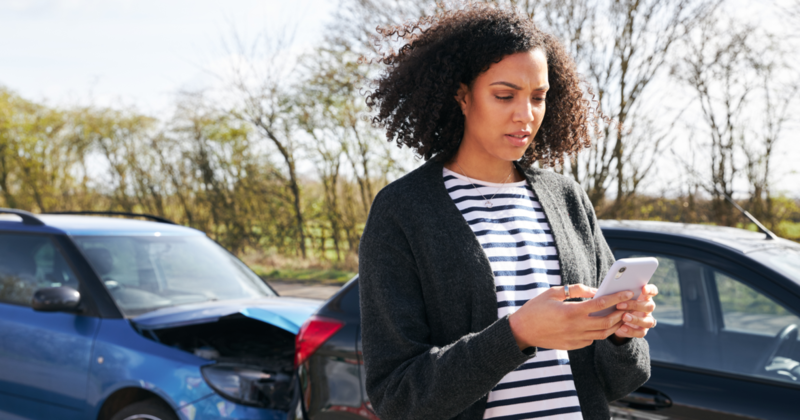
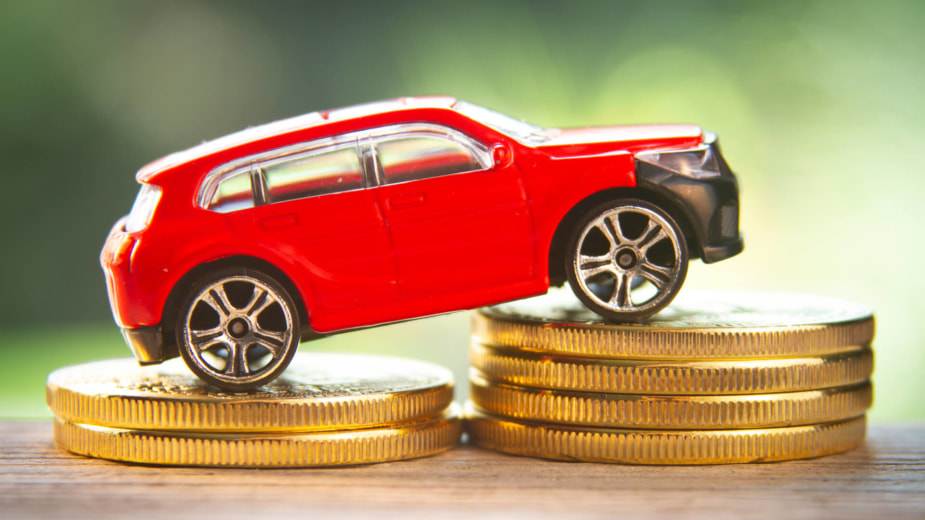

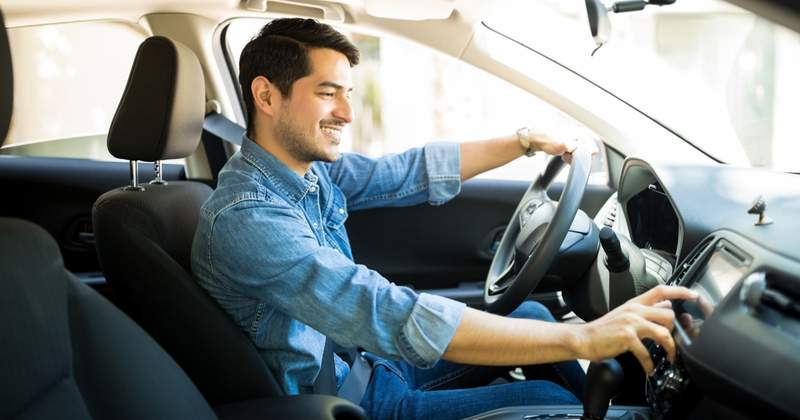
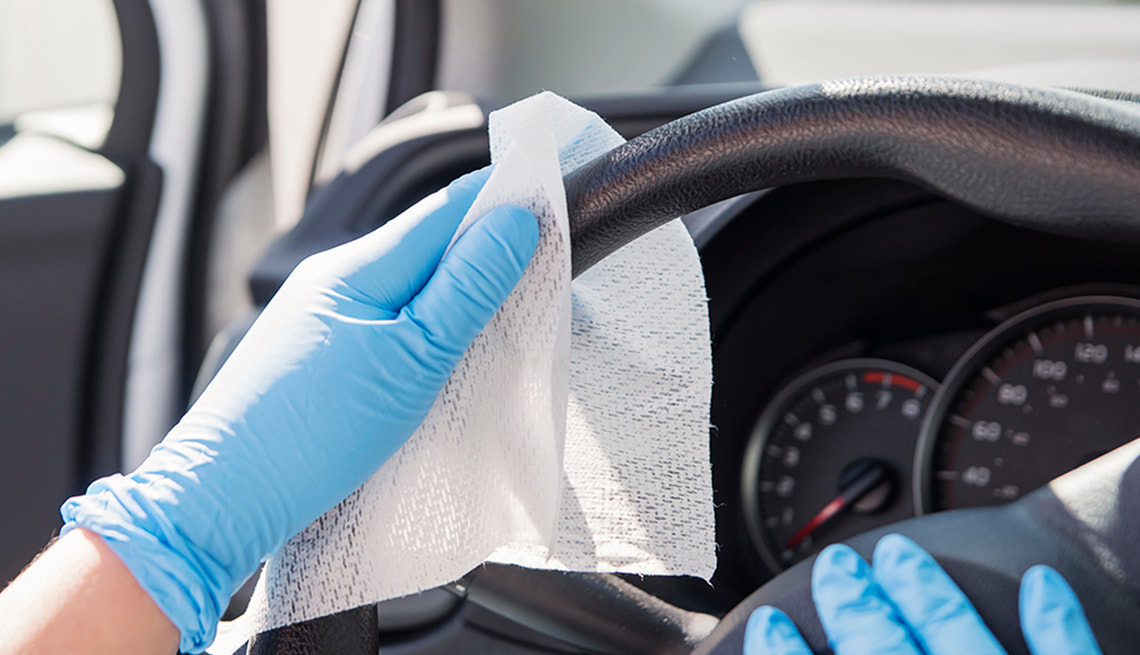


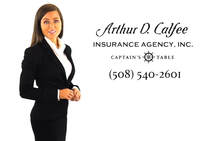



 RSS Feed
RSS Feed








